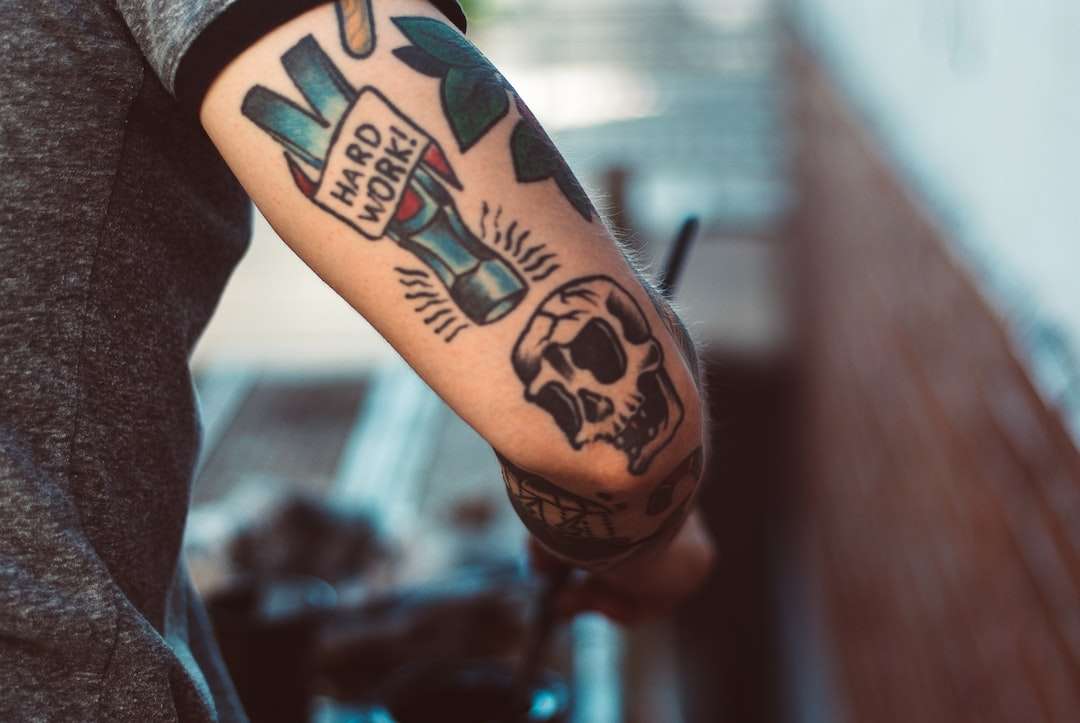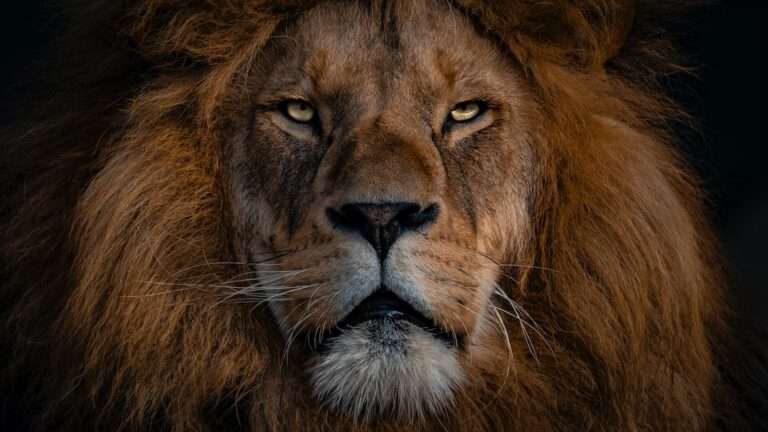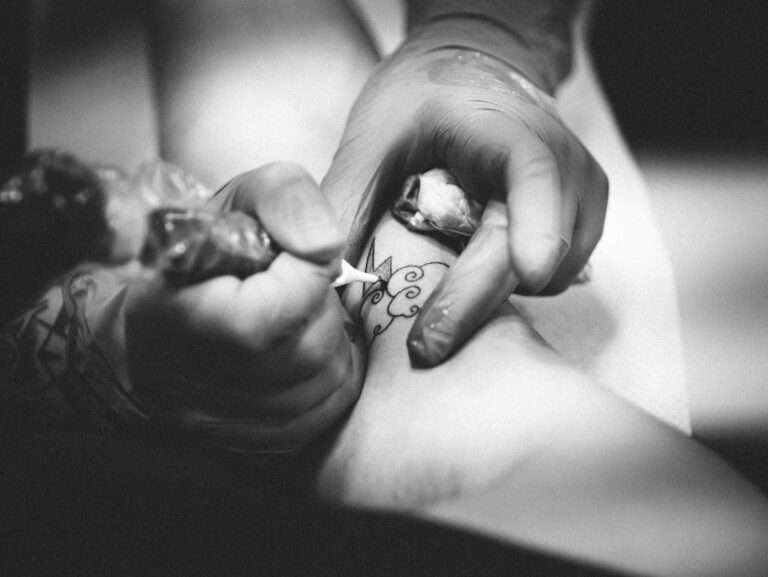Symbolism and Meanings Behind Religious Tattoos

Tattoos have been a form of self-expression and cultural identity for centuries. They hold deep meaning and symbolism for those who choose to adorn their bodies with ink. One particular type of tattoo that carries immense significance is the religious tattoo. These tattoos are not only a way to showcase one’s faith, but they also serve as a constant reminder of one’s beliefs and values.
Religious tattoos can be found in various cultures and religions around the world. They are a way for individuals to visually display their devotion and commitment to their faith. Whether it is a symbol, scripture, or deity, religious tattoos hold a special place in the hearts of those who wear them.
The History of Religious Tattoos: From Ancient Times to Modern Day
The history of religious tattoos dates back thousands of years. In ancient times, tattoos were used as a form of spiritual protection and identification. For example, in ancient Egypt, tattoos were believed to have magical properties and were used to protect the wearer from evil spirits. Similarly, in ancient Greece and Rome, tattoos were used to honor the gods and goddesses.
Religious tattoos can also be found in various indigenous cultures around the world. In Polynesia, for instance, tattoos known as “tatau” were used to symbolize one’s connection to the gods and ancestors. These intricate designs were not only a form of body art but also served as a spiritual rite of passage.
In modern times, religious tattoos continue to be popular among people of all faiths. They serve as a way for individuals to express their spirituality and devotion in a permanent and visible manner.
The Different Types of Religious Tattoos: Symbols, Scriptures, and Deities
Religious tattoos come in various forms, each representing different aspects of faith. One common type is the use of symbols. Symbols such as the cross, the Star of David, and the Om symbol are widely recognized as representations of Christianity, Judaism, and Hinduism, respectively. These symbols serve as a visual reminder of one’s religious beliefs and can be a source of strength and comfort.
Another type of religious tattoo is the use of scriptures. Many people choose to have verses or passages from their holy texts tattooed on their bodies. These scriptures serve as a constant reminder of the teachings and principles of their faith. They can also serve as a source of inspiration and guidance in times of need.
Deities are also a popular choice for religious tattoos. Many people choose to have images or portraits of their gods or goddesses tattooed on their bodies. These tattoos serve as a way to honor and connect with the divine. They can also serve as a source of protection and guidance.
The Symbolism Behind Religious Tattoos: What Do They Represent?
Religious tattoos are rich in symbolism and meaning. Each symbol, scripture, or deity represents different aspects of faith and spirituality. For example, the cross is a symbol of Christianity and represents the sacrifice and resurrection of Jesus Christ. It is a powerful symbol that serves as a reminder of God’s love and forgiveness.
Similarly, the Star of David is a symbol of Judaism and represents the connection between God and his chosen people. It is a symbol of protection and unity.
The Om symbol, on the other hand, is a sacred sound in Hinduism and represents the essence of the ultimate reality. It is believed to be the sound that created the universe and is often used in meditation and prayer.
The Spiritual and Cultural Significance of Religious Tattoos
Religious tattoos hold great spiritual significance for those who wear them. They serve as a constant reminder of one’s faith and beliefs. They can also serve as a source of strength and comfort in times of doubt or hardship.
In addition to their spiritual significance, religious tattoos also hold cultural significance. They are often deeply rooted in the traditions and customs of a particular culture or community. For example, in Maori culture, tattoos known as “moko” are used to symbolize one’s identity and social status. These tattoos are not only a form of body art but also serve as a way to connect with one’s ancestors and heritage.
The Role of Religious Tattoos in Personal and Collective Identity

Religious tattoos play a significant role in personal and collective identity. They are a way for individuals to express their beliefs and values and to showcase their commitment to their faith. For many people, religious tattoos are a source of pride and a way to connect with others who share the same beliefs.
Religious tattoos can also play a role in collective identity. They can serve as a symbol of unity and solidarity among members of a particular religious community. They can also serve as a way to distinguish oneself from others and to assert one’s religious identity.
Religious Tattoos and Faith: How They Connect and Strengthen Beliefs
Religious tattoos have the power to connect and strengthen one’s faith. They serve as a constant reminder of one’s beliefs and values, and can provide comfort and reassurance in times of doubt or uncertainty.
For many people, religious tattoos are a way to express their devotion and commitment to their faith. They serve as a visual representation of their beliefs and can be a source of inspiration and motivation.
Religious tattoos can also serve as a way to deepen one’s spiritual connection. They can be a form of meditation or prayer, allowing the wearer to focus their thoughts and intentions on their faith.
The Controversies Surrounding Religious Tattoos
While religious tattoos hold deep meaning for those who wear them, they can also be the subject of controversy. Some religious traditions prohibit the use of tattoos, viewing them as a form of defilement or desecration of the body.
In addition, there are debates within religious communities about the appropriateness of certain symbols or images. Some argue that certain tattoos may be seen as disrespectful or offensive to their faith.
Furthermore, there are concerns about cultural appropriation when it comes to religious tattoos. Some argue that wearing religious symbols or images from a culture that is not one’s own can be seen as disrespectful or insensitive.
The Art of Religious Tattoos: Styles, Techniques, and Artists
The art of religious tattoos encompasses a wide range of styles and techniques. From traditional black and gray designs to vibrant and colorful pieces, there is a style to suit every individual’s taste.
Some popular styles of religious tattoos include traditional, neo-traditional, realism, and watercolor. Traditional tattoos often feature bold lines and bright colors, while neo-traditional tattoos incorporate more intricate details and shading. Realism tattoos aim to create lifelike representations of religious figures or symbols, while watercolor tattoos use vibrant colors and flowing brushstrokes to create a more abstract look.
There are also many talented tattoo artists who specialize in religious tattoos. These artists have a deep understanding of the symbolism and meaning behind religious imagery and can create custom designs that perfectly capture an individual’s faith and beliefs.
The Power of Sacred Ink and Its Enduring Appeal
Religious tattoos hold immense significance for those who wear them. They serve as a visual representation of one’s faith and beliefs, and can provide comfort, strength, and inspiration in times of need.
The enduring appeal of religious tattoos lies in their ability to connect individuals with their spirituality and to express their devotion in a permanent and visible manner. Whether it is a symbol, scripture, or deity, religious tattoos serve as a constant reminder of one’s faith and values.
While there may be controversies surrounding religious tattoos, they continue to be a popular form of self-expression and cultural identity. The artistry and symbolism behind religious tattoos make them a powerful and meaningful way for individuals to showcase their beliefs and to connect with others who share the same faith.
If you’re interested in exploring the deeper meanings behind religious tattoos, you may find this article on the symbolism of the moon fascinating. The moon has long been associated with spirituality and mysticism in various cultures around the world. From its connection to feminine energy and intuition to its representation of cycles and transformation, the moon holds significant symbolism. To delve further into this topic, check out this insightful article on the symbolism of the moon.
FAQs
What are religious tattoos?
Religious tattoos are tattoos that depict religious symbols, figures, or quotes from religious texts.
What are some common religious tattoo designs?
Some common religious tattoo designs include crosses, angels, praying hands, the Virgin Mary, Jesus Christ, and various religious quotes.
What do religious tattoos symbolize?
Religious tattoos can symbolize a person’s faith, devotion, and spiritual beliefs. They can also serve as a reminder of one’s religious values and beliefs.
Are religious tattoos only for certain religions?
No, religious tattoos can be found in many different religions, including Christianity, Islam, Judaism, Hinduism, Buddhism, and more.
What are some popular religious tattoo locations on the body?
Some popular locations for religious tattoos include the arms, back, chest, and wrists.
Are there any cultural or religious taboos surrounding religious tattoos?
Yes, some religions may have specific rules or beliefs regarding tattoos. For example, in Judaism, tattoos are generally discouraged as they are seen as a desecration of the body, which is considered sacred. In Islam, tattoos are also generally discouraged as they are seen as a form of self-mutilation. It is important to research and respect the cultural and religious beliefs surrounding tattoos before getting one.





